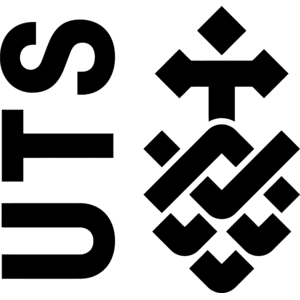Explore Australia's best online degrees for high-paying jobs in data analysis and strategic insights.

Overview
A master's degree in business analytics is a postgraduate course that combines data and business training. Typically comprising 12 subjects, online degrees can be earned in 24 months of part-time study while working full-time.
While focus and content vary, programs commonly address topics like data visualisation, customer analytics, predictive analytics, financial modelling, principles of programming, and the ethical management of data. Students develop skills in interpreting vast data sets, designing data-driven strategies, optimising work processes, and effectively communicating insights.
Given the volume and value of data available, studying business analytics opens up numerous job and career opportunities. These span roles such as business analyst, data analyst, marketing or financial analyst, through to positions like director of business development, and CEO.
Online Degrees from Australian Universities
A great business analyst has technical skills but also insights and strategies to influence decisions. Build your professional capacities in these areas with a business analytics master's degree. This rich set of programs should contain at least one great study option for you, whether you aim to be a solutions analyst, a data specialist, or an executive manager with analytical skills.
1. UNSW Online - Master of Analytics
For aspiring analysts and strategists, the Master of Analytics from UNSW Online is an opportunity to develop cutting-edge skills. Students learn through 12 subjects, covering data visualisation, predictive analytics, financial modelling, consulting, and more. Graduates gain both technical and strategic insights, preparing them for diverse roles ranging from highly technical to corporate planning focused. Offered entirely online and in an accelerated format, professionals can earn their degree in as little as two years without interrupting their careers.
2. UNSW Online - Master of Analytics (Marketing)
The Master of Analytics (Marketing) from UNSW is designed for marketing professionals aiming to develop advanced analytical skills. Students explore topics such as principles of programming, introductory data analysis, and big data management. The marketing specialisation emphasises social media and digital analytics, foundations of marketing analytics, and the nuances of managing customer data. With a structure that allows each subject to be completed in a 7-week study block, this 12-subject part-time program allows you to add new technology skills as a working professional.
3. UTS Online - MBA (Business Analytics)
Gain vital analytical skills to complement your development as a manager with an MBA in Business Analytics. UTS Online delivers this 100% online degree over twelve 7-week study blocks. Subjects include customer analytics, data visualisation and visual analytics, predictive modelling, data ethics and regulation, and the foundational aspects of analytics. The program is well-rounded, also covering leadership, marketing, finance, negotiating, and governance.
4. JCU Online - MBA Global
The MBA Global from JCU Online has a strong emphasis on data-driven decision-making. As well as developing managerial skills and global perspectives, students learn how to integrate data into firm strategy and planning. Subjects include information management and analytics technology, data analysis and decision modelling, marketing strategy and analytics, corporate finance, and the intricacies of data information: management, security, privacy, and ethics. Online learners benefit from an interactive and immersive study platform.
Why This Course Is Worth It
A business analytics master's degree offers a high return in investment since graduates are highly employable and can choose from a wide range of jobs.
Business analysts consistently earn high salaries in Australia, receiving a $10k-$12k salary premium compared to data analysts. The higher pay reflects the ability of business analysts to bridge the gap between data insights and practical company decisions, making them valuable assets.
The skills obtained from a business analytics degree hold enduring value and open doors to job positions that align with your interests. With businesses relying heavily on big data for strategic planning and decision-making, the demand for analytical professionals continues to grow, providing a future-proof career path.
Furthermore, the degree provides a well-rounded education with flexible study streams. Studying and graduating in Australia adds value as well, with top-quality programs, high demand for analysts, and excellent job prospects across sectors.
Which Masters Is Best for Business Analysts?
Let's examine five different types of master's degrees for business analyst roles. Each of these programs prepares you for in-demand careers in data analysis and business insights. From analytics to data science specialisations, discover postgraduate courses that position you for career success.
To work in business analysis, whether in an entry-level or senior role, degrees in analytics or business analytics are ideal. They provide the right balance of technical and strategic skills. A marketing analytics degree is geared towards marketers and the analytical tasks they perform. MBA programs are a good fit if you mainly work with data as a manager rather than a technician. But if your goal is technical mastery, consider studying data science.
Analytics is a versatile field of study that prepares you for roles at both the data-crunching and client-facing stages of the business intelligence process.
Foundational data analytic training is complemented with applied problem solving and data reporting in this course.
Topics include introductory data analysis, big data management, financial modelling, decision making in analytics, and business analytics and consulting.
Leave recruiters in no doubt about your capabilities by completing Master of Business Analytics online with a leading Australian university.
You'll learn a combination of data wrangling skills and techniques for generating and presenting strategic insights.
The master's program is suitable for technology experts as well as business professionals with an aptitude for analysis.
Everyone in marketing understands the significance of analytics. Core tasks, like understanding customers or executing campaigns, are enhanced by data insights.
Studying marketing analytics places you in a position of high demand. Learn to leverage data to influence consumers and implement high-ROI campaigns.
Develop skills in analysing data from campaigns, customers, and social media. Roles such as analyst, strategist, and marketing manager await.
Combine business analysis and management training with a Master of Business Administration. MBAs are available where a large chunk of coursework is analytical.
Students approach analytics from a managerial perspective, aiming to comprehend how business analysis is conducted to harness data assets.
You'll cover core MBA subjects to strengthen business and management skills. Analytics complements this general skill development.
If you have a computer science background, a Master of Data Science degree may be your best option for working in the broader business analysis field.
Data scientists use programming and maths techniques to extract value out of data. Topics include data structures, data mining, statistics, machine learning, and AI.
Job and salary prospects are good due to the high skill requirements of data science combined with growing industry demand.
Is a Master of Business Analytics Difficult?
Overall, a business analytics master's degree is about mid-range in difficulty level compared with other fields of study. If we focus on related disciplines, the degree may be slightly easier than your typical data analytics program and is definitely easier than most data science degrees. But it is also harder than many MBA programs.
Completing a business analytics program is easier if you get excited by the prospect of steering the direction of companies. Students essentially learn how to harness data-driven insights to shape strategies and drive decision-making.
Courses in the field do have a significant amount of technical content, which can be challenging if you don't have a strong IT background. Also, expect to cover unfamiliar territory since few students have expertise in all elements of this cross-disciplinary field, which encompasses data management, programming, statistics, and business.
What Graduates Have to Say

Data analyst Hanna Mortazavi saw an opportunity to broaden her skills with a business analytics masters. Reflecting on the degree, she observed, "I've been an analyst for about 7 years, spanning from marketing analytics to advertising. Most recently, I've joined a new company as a data analyst, again in advertising. What really led me to this program is the desire to further my analytical skills. My ultimate goal is to be a data scientist."

Gabe Boucaud, former MSBA student and now a Business Intelligence Engineer at PitchBook Data, found the online learning experience to be smooth, even for group projects. He stated, "Online collaboration tools and platforms make group communication and collaboration seamless. We use tools like Zoom for meetings, shared Google Drive folders for collaborative documents, and discussion forums for brainstorming and decision-making."
Jobs After Your Degree in Australia

Graduates with a Master of Business Analytics or similar degree are highly employable in Australia because of strong demand for analytic skills. Business analytics is among the highest paying business degrees.
Whether you favour technical roles or are most interested in strategy and communication, the degree makes you highly qualified for almost any analyst job.
Where could you work? Almost anywhere. Organisations across every industry and sector find value in data anlysis, whether they employee analysts in-house or hire consultancy services. According to the IIBA, the top 5 industries for business analysts are information technology, finance/insurance, government and public sector, business/professional consulting, and healthcare and social services.
Prospective jobs after graduating include junior business analyst, business analyst, business intelligence officer, data analyst, consumer analyst, market analyst, business development manager, business analytics consultant, people analytics consultant, and digital marketing analyst.
Related: Business Analytics Jobs Examples
Learning Outcomes
A business analytics degree can be a quite comprehensive program that allows you to start working as an analyst immediately. Learning outcomes include that you're able to:
- source and analyse data and generate insights using the latest tools and techniques available
- perform predictive analytics using methods such as linear and logistic regression
- take complex information and translate it into compelling, visual data stories that influence stakeholders.
You're expected to continue with self-directed learning after graduating, to strengthen your skills in certain areas to meet work demands. But a good program will provide you with essential analytical tools to extract insights from data.
Entry Requirements
Entry requirements vary by university. A relevant degree with strong grades is generally a sufficient qualification. More relaxed entry pathways are available by enrolling in a Graduate Certificate in Business Analytics.
Direct admission: You need a bachelor degree (or equivalent qualification) with a credit average of 65% or higher according to the UNSW Admissions entry calculator.
Entry via graduate certificate: Articulation pathways from the Graduate Certificate program exist if you finish with a WAM of 65+. The course is accessible by degree holders and professionals without a degree who have 3+ years of relevant experience.
Tuition fees for 12 subjects starting in 2024 are estimated at $58,000 for domestic and international students. Course costs depending on elective units chosen. Graduate certificates consist of 4 subjects from the program while a Graduate Diploma in Analytics is 8 subjects.







